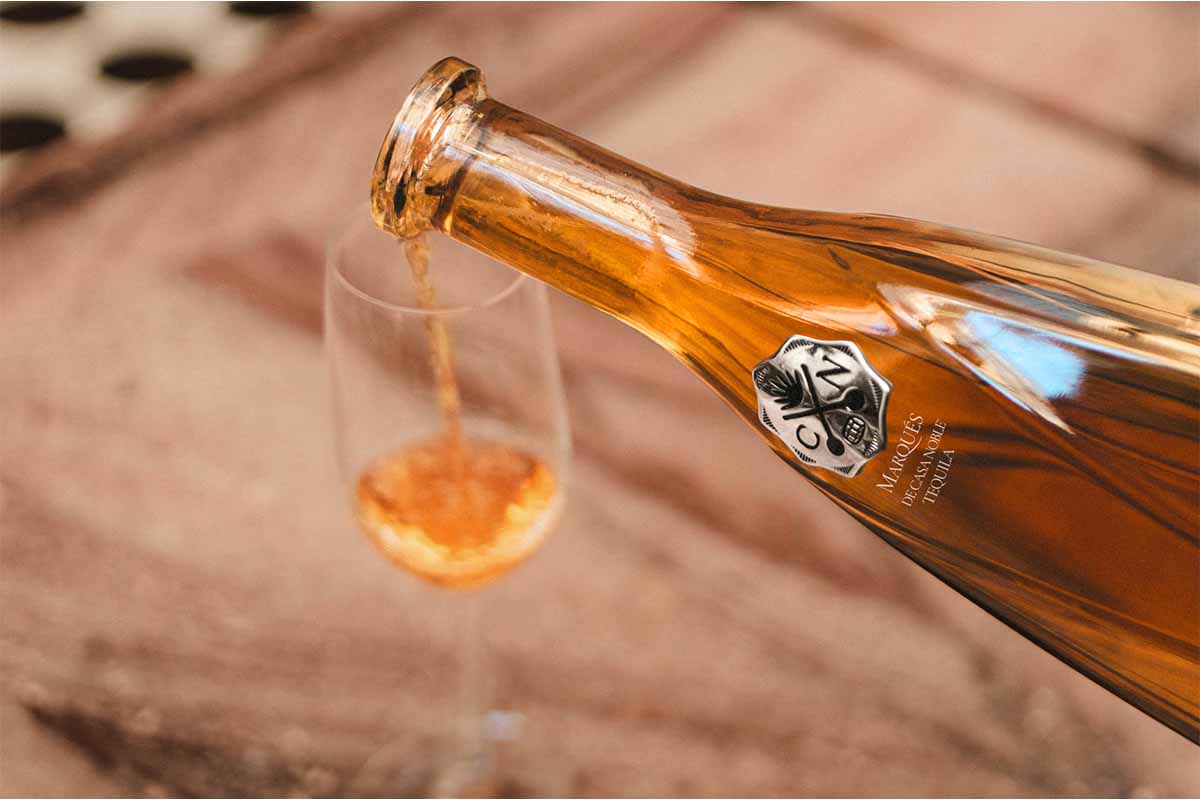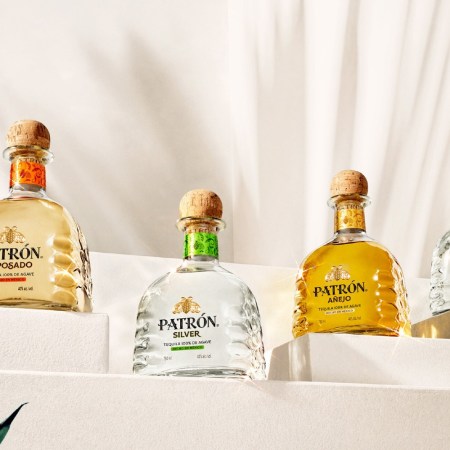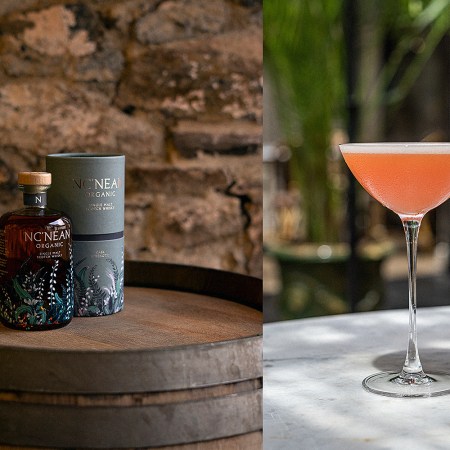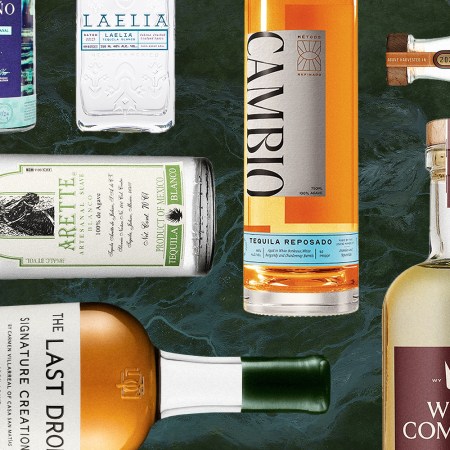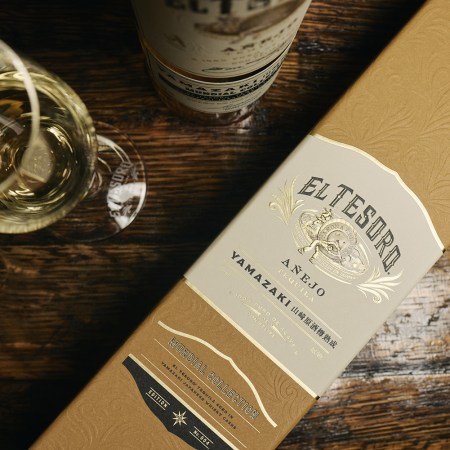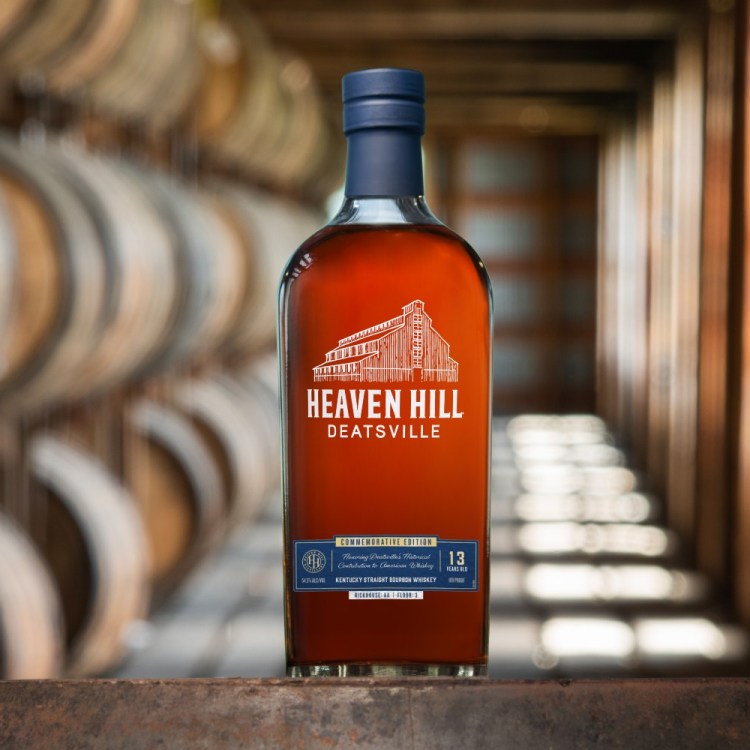What does “certified organic” do for a tequila? It’s unlikely you’ll taste much (if any) difference between an organic tequila and one that’s…not organic? However, you will be helping reduce pesticides, herbicides, artificial fertilizers and pollution in fields across western Mexico by going organic, while potentially reducing the amount of toxic chemicals entering your bloodstream. A brand serious about organic farming techniques may also take the entire production process seriously, emphasizing (slower) traditional methods. And since organic versions of anything usually cost more (here’s our list of the best affordable tequilas while we’re at it), there’s at least some incentive to make the best tequila possible to justify the price to consumers.
“When I started, the consumer landscape wasn’t paying much attention to tequila and its relationship with the environment,” says Josè “Pepe” Hermosillo the founder and maestro tequilero for Casa Noble, an OG in the world of certified organic tequila. “We would like to think we helped with this awareness as we dove into sustainability early on, including organic certification, composting, water treatment and many other spaces. While there certainly could be more out there in the future to be done, we’re seeing more brands making organic agave claims.”
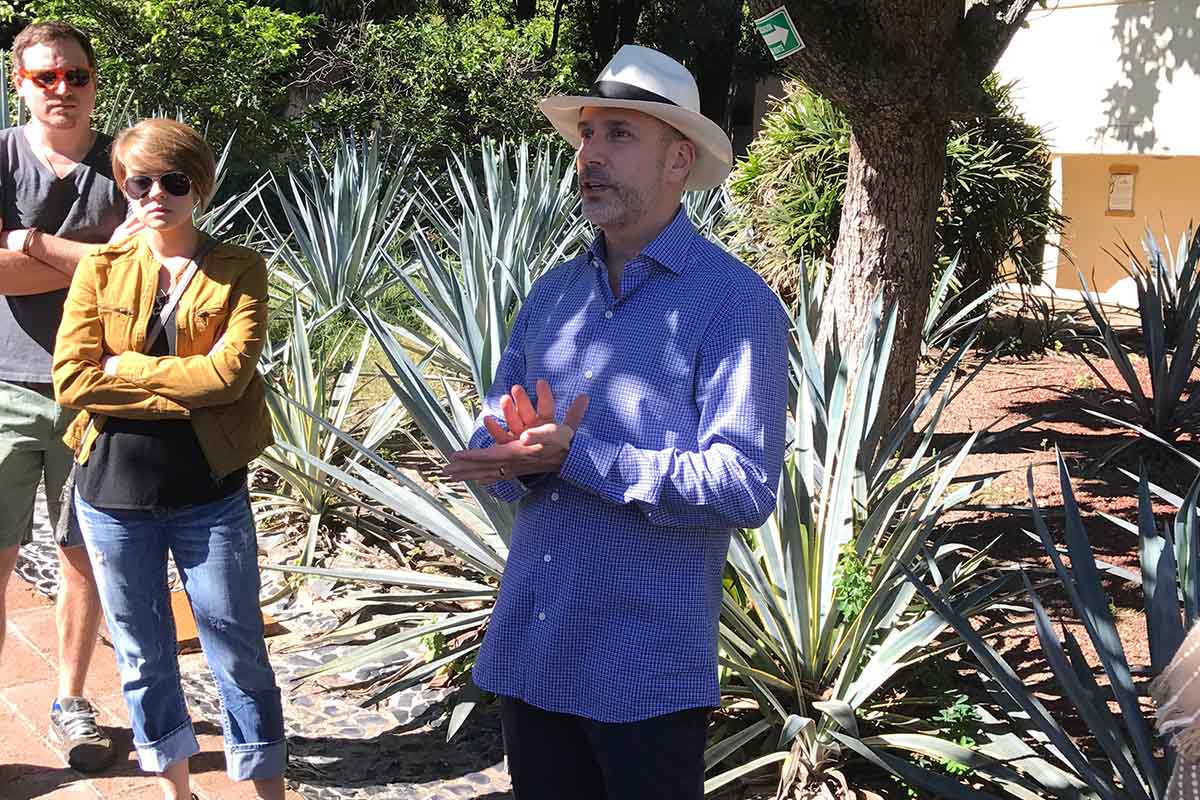
There are, of course, a ton of caveats. “The term ‘organic’ doesn’t tell consumers much about the purity or overall quality of an agave spirit,” says Tess Rose, author of The Essential Tequila & Mezcal Companion: How to Select, Collect and Savor Agave Spirits. She notes that in the case of tequila, organic classification is focused on the plants in the field, not what happens to the finished spirit, where legal additives — including sweeteners, stabilizers, coloring and flavoring agents — may be included but not disclosed. “Personally, I would pay more attention to the Additive Free certification from Tequila Matchmaker, if my goal was to get the most ‘pure’ tequila.” Additive Free certification requires on-site inspection and a great deal of transparency from the brand and distillery (each of which often produces many tequila products of varying quality).
Alex Lacroix, co-founder of Siempre Tequila which emphasizes traditional production methods and additive-free products, is even more skeptical of the certified organic promise. He notes that the USDA only monitors the three years prior to harvest for organic practices, but agave grows for five to 10 years before it’s harvested. “Therefore, you can jack your plants up for the first several years, then go natural in the final years, which should be done anyway to flush plants out. Many certified organic tequilas also try and ride on the public assumption that it also means they are additive-free, which often isn’t the case.” Siempre is not only certified additive-free, but with expressions like Exclusivo Edicion Especial Vivo, Lacroix and his team work to revive ancient and “lost” production practices often reflecting rarely explored indigenous techniques.
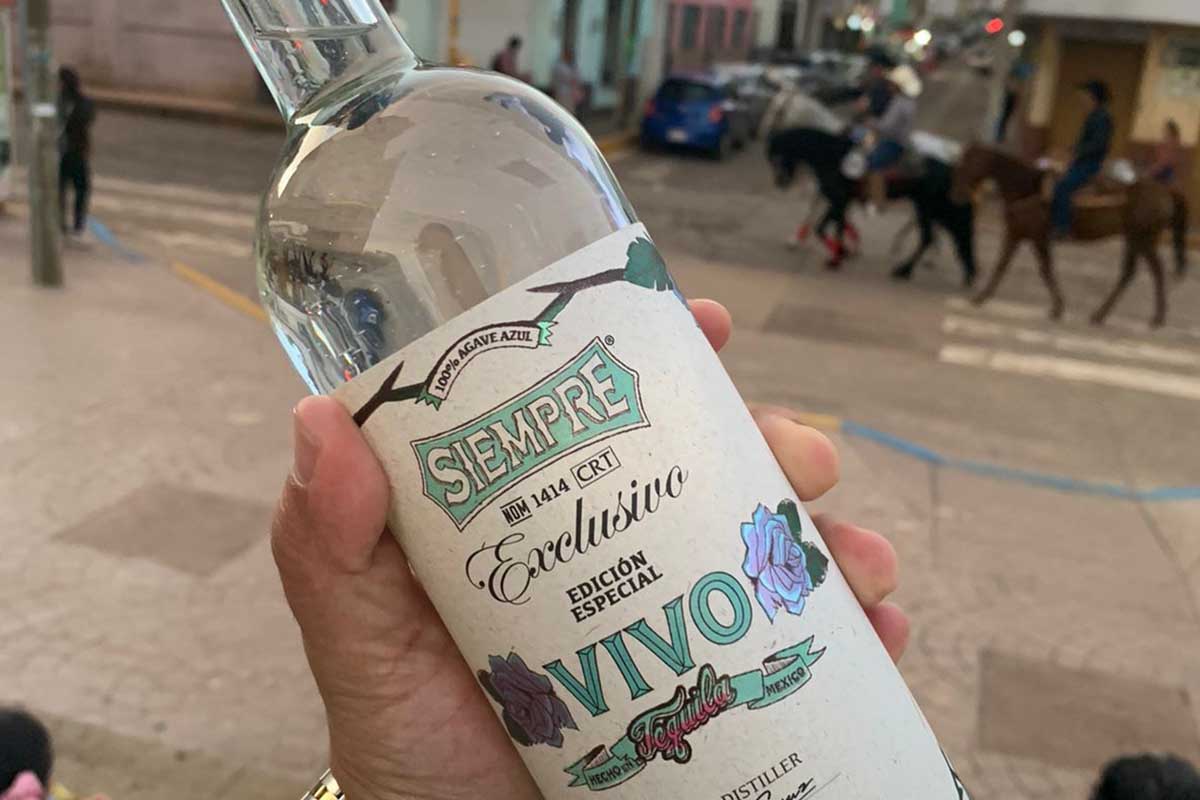
When it comes to agave spirits, issues of social and economic responsibility are so complex, you may want to look beyond organic and additive-free classifications. Water quality and disposal, land use, fair trade, labor practices, sustainability, bat habitat and waste management all challenge tequila producers in ways that are arguably more pronounced than with, say, bourbon or Scotch.
“For us at Casa Noble, it goes beyond the word ‘organic,’” says Hermosillo. “We are constantly thinking and implementing ways to be better from a sustainability lens.” The brand opted for lighter, recycled bottles with a lower carbon footprint, emphasizes biodiversity and composting, and has begun producing biodegradable straws from spent agave fibers, among other initiatives.
“Organic” also means different things in different countries. Certification requirements for the European Union and the USDA-approved California Certified Organic Farmers (CCOF), among others, tend to be much stricter than the USDA’s own requirements. It’s not perfect, but checking the label for multiple certification logos helps ensure you’re dealing with a dedicated brand trying to get it right.
Keep an eye out also for brands where some stock is certified organic while some is not. Flavored expressions and RTD cocktails may include organic tequila, but the juices, sugars and flavorings may not be. In addition, many brands opt for organic farming practices, but can’t or don’t want to pay out for official certification.
“Tequila Ocho is — as Ron Cooper from Del Maguey puts it — ‘pre-organic,’” says Jesse Estes, global brand ambassador for the well-respected brand. “Carlos Camarena and his family have been growing agave and producing tequila long before there was such a thing as organic certification. But the family has never used chemical pesticides, herbicides, or chemical fertilizers in the soil or on the plants. They’ve always nurtured the soil by using practices like crop rotation. There are also issues like costs and bureaucratic processes we have no interest in entertaining.” He also notes that Ocho is certified Additive Free. El Tesoro, another highly regarded Camarena family brand, is certified additive-free and “produced organically, and all byproducts are composted.”
Concerned that celebrity tequilas haven’t hopped on the organic bandwagon? Worry no longer. There is pretty good evidence actor Matthew McConaughey and his wife are in the process of getting approval for a new organic label, Tequila Pantalones, from NOM 1614 (the same distillery that produces organic tequila for Tres Agaves and Padrecito Premium).
If you’re serious about your hooch being organic, consider incorporating organic juices and mixers in your cocktails where you can. You can also watch for cocktails on bar menus highlighting organic tequilas. The newest Death & Co outpost, in Washington DC, features an excellent spicy margarita riff on its debut menu. Justin Rodriguez, director of operations at The Emerald Hour in Mountain View, CA, says that while customers are increasingly aware of additive-free tequilas, “not enough emphasis is put on the farming.” Since a seven-year-old agave could include seven years of pesticides and herbicides, “we try and use agave spirits which are not only additive-free, but practicing organic as well.”
In addition to being certified organic, we can confirm the following tequilas are also 100% certified delicious:
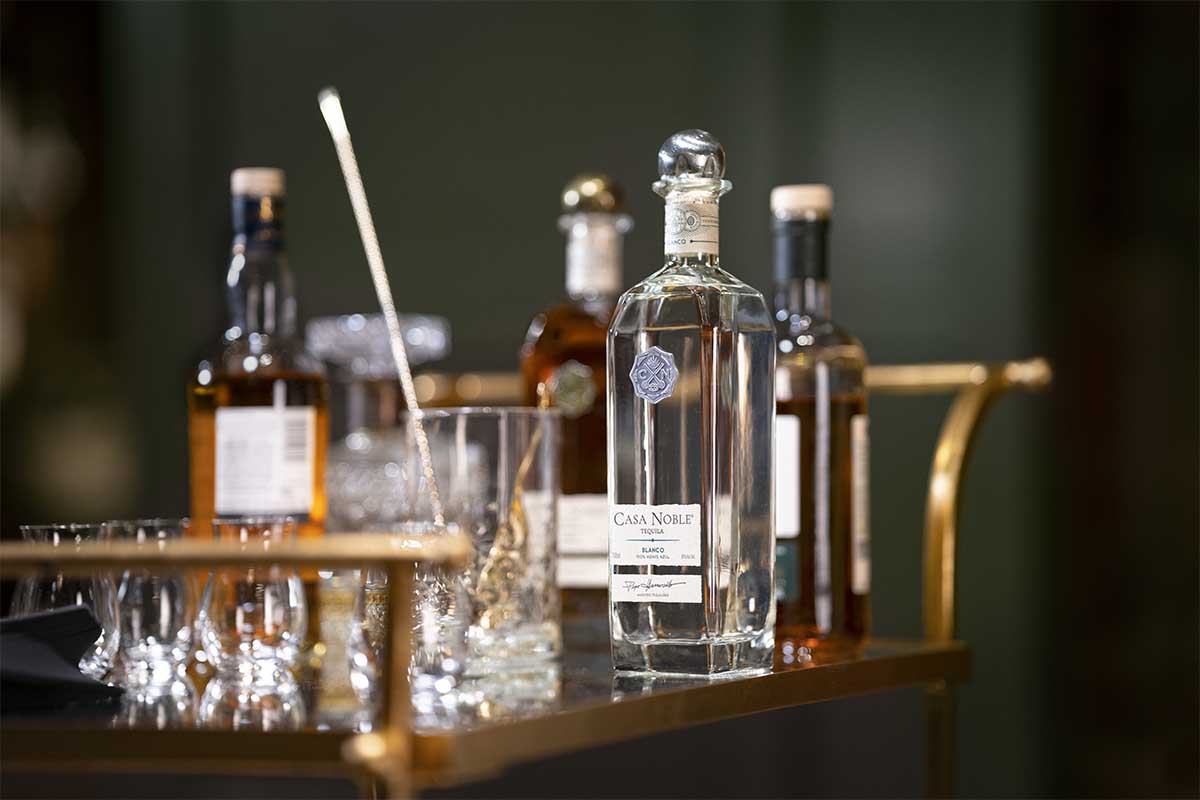
Casa Noble
The brand was founded by Hermosillo in the late 90s and achieved certified organic status (USDA and CCOF) by 2009. Hermosillo has been very thorough: all expressions are certified organic, and both the high-altitude, estate-owned fields and distillery are inspected annually. He started with “virgin” land that hadn’t been exposed to decades of heavy agricultural pesticides or fertilizers. Plants are protected from disease and non-organic contamination through constant inspections and cleaning of tools, trucks and more. The brand emphasizes biodynamic farming, surrounding the agave fields with mango and citrus trees and using ambient airborne yeasts during fermentation. Though not certified through Tequila Matchmaker, Hermosillo has said on several occasions there are no additives.
The result is not only an environmentally more responsible juice, but a portfolio of delicious, well-made tequilas emphasizing tropical fruit and herbaceous, grassy notes. In addition to core expressions of Blanco, Reposado (aged 364 days) and Añejo (aged two years), variations and limited editions are sometimes released. Last year, the brand added Marques de Casa Noble (40% ABV, $200). A luxe blend of 21 añejo and extra-añejo tequilas, each aged between one and five years, the end result is a rich, balanced sipping tequila with deeper chocolate and softer wood notes than the regular Añejo. This fall, be on the lookout for another limited-edition release.
Why You’ve Never Tasted Jose Cuervo’s Best Tequila
No shots here: The centuries-old distillery just released Reserva de la Familia 2023, a line of uniquely crafted and extra-aged tequila.Reserva de la Familia by Jose Cuervo
The oldest and largest tequila brand is in the process of making two of its Reserva products — Platino and Reposado — certified organic. Release of the certified collection is still in the works and is expected to debut in September 2023, but the process reflects years of preparation. The company has set aside more than 2,000 hectares of land to be certified to produce organic agave for the upscale Reserva del la Familia range, and certification will apply in Mexico, the U.S., and the EU. According to a spokesperson, the organic status covers the entire production process, from fertilizing the fields, planting, controlling for pests and weeds, using organic yeasts and any other food products incorporated, cleaning equipment and sanitizing barrels for aging.
The new organic products are currently limited to two Reserva de la Familia expressions: a Platino (which incorporates a proprietary “Essencia de Agave” process) and Reposado (aged using three different types of wood and barrel toasting styles). The Extra Añejo expression, which begins with eight to 10-year-old agave plants, ages longer (a minimum of three years) and won’t qualify as organic until all of the component-aged tequilas come from certified harvests, which could be years from now.
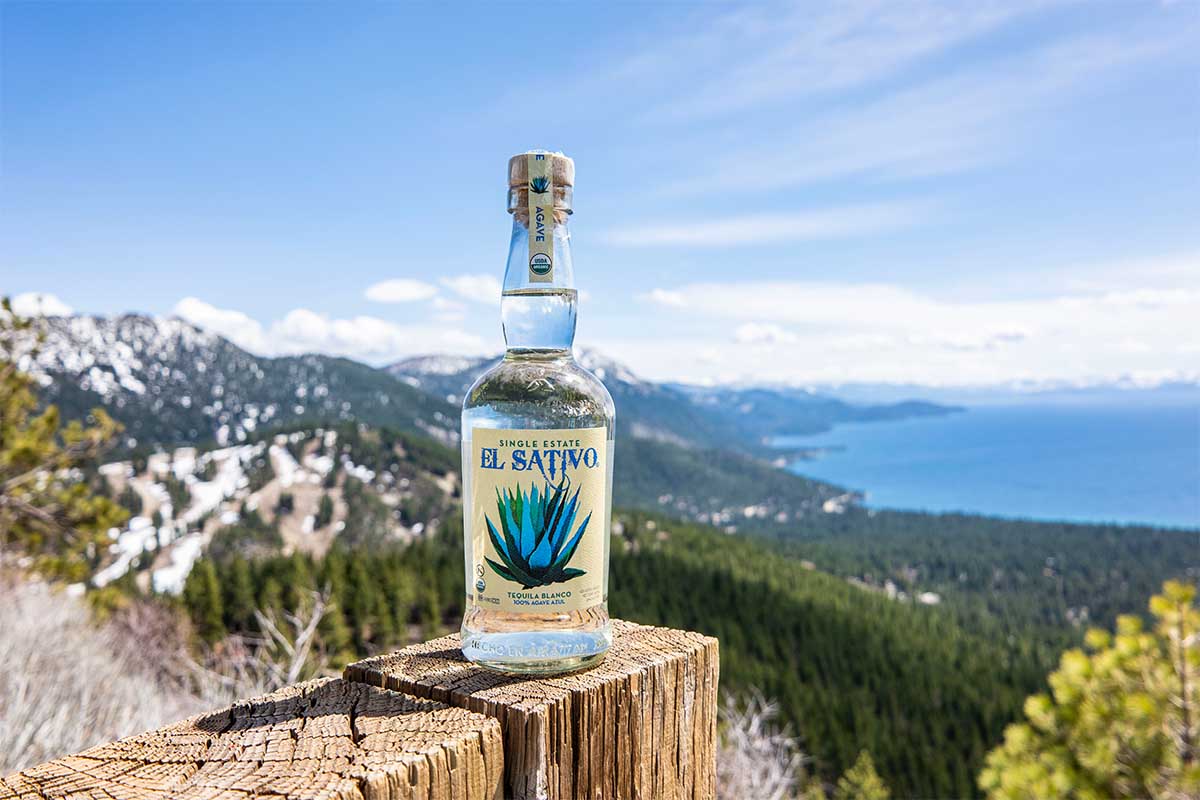
El Sativo
A well-made, award-winning certified organic tequila with a modern flavor profile (vanilla, banana, even a hint of cream soda) at an approachable price point (the Blanco is $40). El Sativo was created in collaboration with fourth-generation distiller Alvero Montes and his son Marcos. Lowland agave near Amititan is organically grown and harvested for three core expressions (Blanco, Reposado aged nine months in ex-bourbon, and Añejo aged 16 months in ex-Tennessee whiskey barrels). The Reposado and Añejo both are relatively new, having launched in 2021. With this year’s Gold award for the Añejo, all three expressions have earned Gold or higher at the San Francisco Spirits Competition. Though it is not certified as additive-free, it is certified Kosher and the brand claims the tequilas are, in fact, additive-free. In addition, the company makes ongoing efforts to do better: bottles are made of recycled glass, labels feature organic, soluble inks, and a portion of every bottle sold goes to Ocean Conservancy.
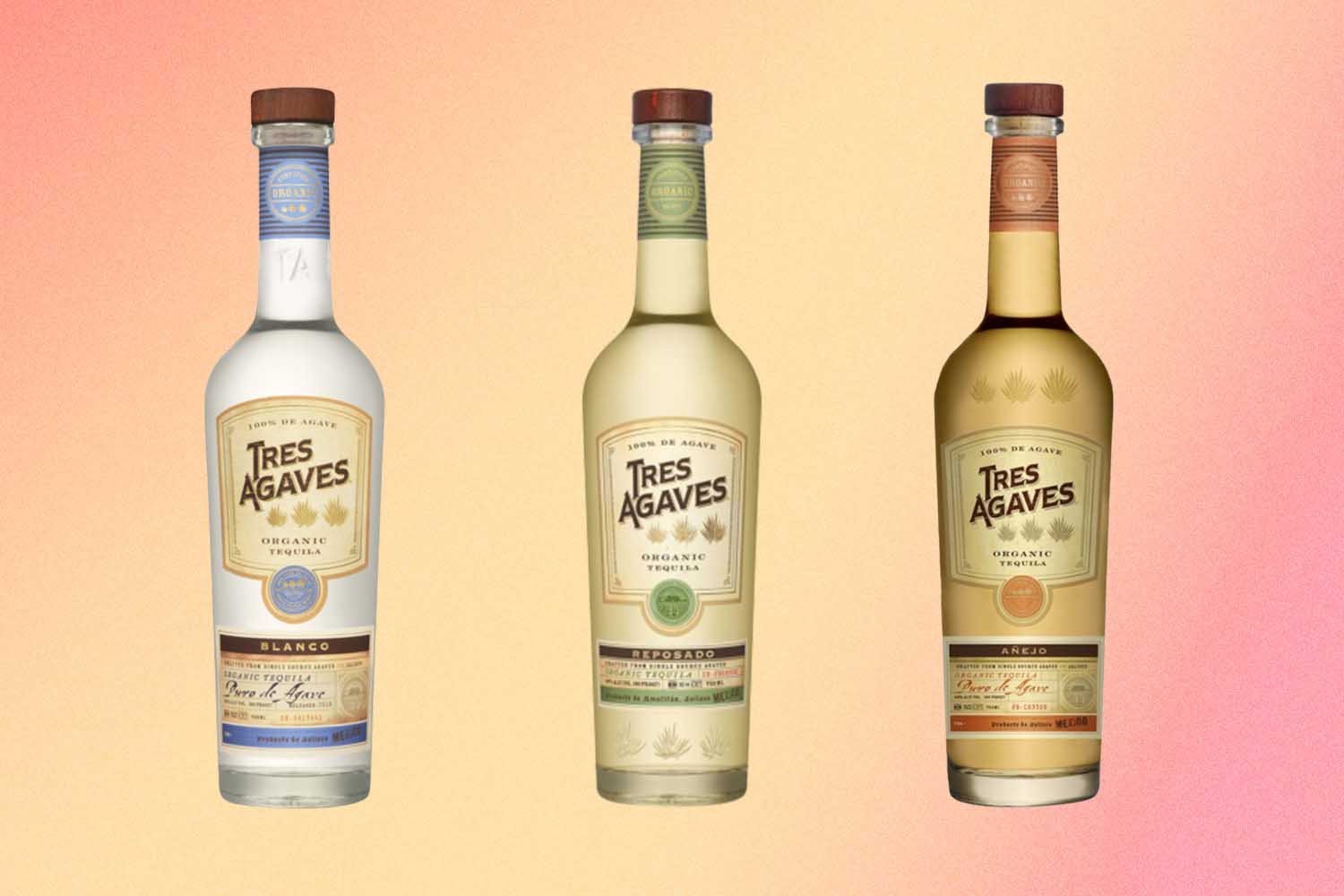
Tres Agaves Organic
Founded in 2008 by Barry Augus, and sold to Trinchero Family Estates in 2020, Tres Agaves is USDA Certified Organic and Certified Additive Free. The brand also offers up several organic cocktail mixers and agave nectar (great for ensuring your cocktails are as organic as possible). The Blanco, Reposado (aged eight to nine months in ex-Tennessee whiskey and ex-bourbon) and Añejo (aged 15-18 months in the same barrels) are crowd pleasers. While not as complex a flavor profile as some tequilas, the expressions emphasize agave and floral notes, and are fantastic in mixed drinks. In addition, the price points ($30 for the Blanco, $40 for the Añejo) are hard to beat for quality tequila.
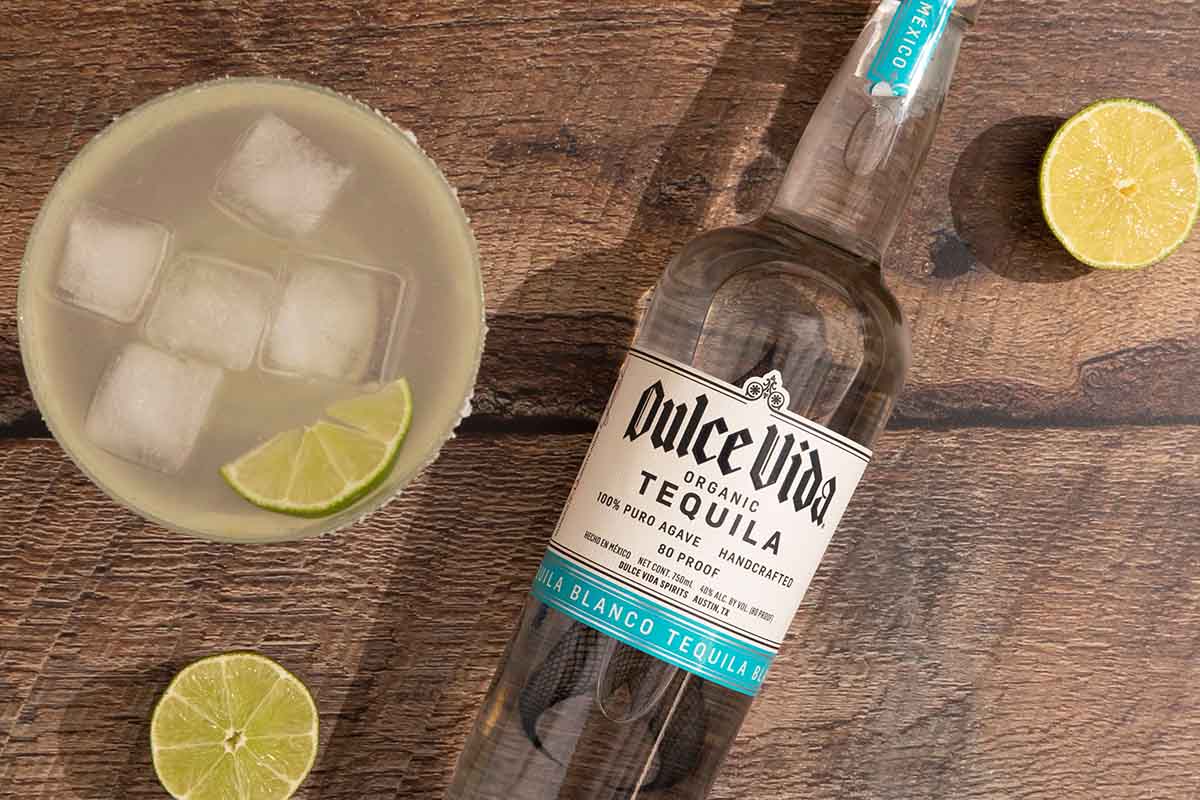
Dulce Vida
Back in 2013, Duce Vida billed itself as the “world’s only USDA-certified organic tequila,” which wasn’t completely true, but the brand was definitely an early adopter (along with Casa Noble and 123 Organic). Launched in 2009 by Austin-based founders Richard Sorenson and Chris Cain (and produced in the village of San Ignacio Cerro Gordo at the Campanario distillery), the brand — which has now been certified as additive-free as well — has made a point of marketing the spirit as a fun, “cleaner” way to drink tequila (a recent campaign slogan read “You Are What You Drink.”) In addition to the core 80-proof Blanco, Reposado (in American oak, age not disclosed), Añejo (time in American oak, age not disclosed), and Extra Añejo (aged five years in American oak and finished in ex-wine barrels), you’ll also find higher-proofed (50% ABV) versions of each, also organic. Dedicated to sustainability, the brand recaptures all production waste to create compost for the local farming community, and captures and reuses methane gas released during production to help reduce the distillery’s carbon footprint.
Dulce Vida kicked off a range of flavored tequilas in 2016. Though they use the same core organic tequila, the additional ingredients in Infusions like Lime, Grapefruit, and the very tasty Pineapple Jalapeño mean those expressions can’t be certified organic. This year, the brand debuted a host of RTD sparkling cocktails in Tetra Paks, beginning with a Paloma, Margarita and Watermelon Margarita. Though not organic, the cocktails are made using real fruit juices, natural ingredients and Dulce Vida Blanco Tequila.
Every Thursday, our resident experts see to it that you’re up to date on the latest from the world of drinks. Trend reports, bottle reviews, cocktail recipes and more. Sign up for THE SPILL now.
